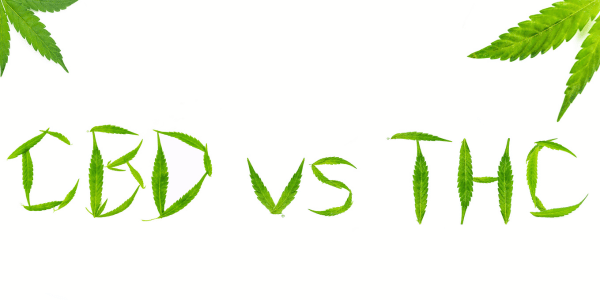The cannabis plant has been at the center of a significant amount of discussion and research in recent years, particularly with the growing interest in its two primary compounds: cannabidiol (CBD) and tetrahydrocannabinol (THC). These compounds have gained attention for their distinct effects and uses, prompting many to ask: “What is CBD vs THC?”
What is CBD?
CBD, or cannabidiol, is a chemical compound found in cannabis plants, including hemp and marijuana. Unlike its more famous counterpart, THC, CBD is non-psychoactive, meaning it doesn’t cause the “high” associated with cannabis. This unique attribute has made CBD a popular choice for those seeking therapeutic benefits without the mind-altering effects.
What Does CBD Do?
Research into CBD has uncovered a variety of potential therapeutic uses. Studies suggest that CBD may offer relief for chronic pain, anxiety, and inflammation. It’s also been studied for its role in treating more severe conditions, such as epilepsy. The FDA has approved a CBD-based medication, Epidiolex, for the treatment of certain types of epilepsy.
CBD is thought to interact with the body’s endocannabinoid system, a complex system of receptors and neurotransmitters that play a role in maintaining homeostasis. CBD’s interaction with this system is believed to be responsible for its potential therapeutic effects.
What is THC?
THC, or tetrahydrocannabinol, is the main psychoactive compound in cannabis that produces the high sensation. Found in larger amounts in marijuana plants, THC is what most people think of when they consider cannabis products.
What Does THC Do?
THC works by binding to cannabinoid receptors in the brain, producing a range of effects. These can include altered senses, changes in mood, impaired memory, and an altered sense of time. The psychoactive properties of THC make it popular for recreational use, but it also has several therapeutic benefits.
Medically, THC has been found to help with conditions like pain, muscle spasticity, glaucoma, insomnia, and low appetite. It’s also been studied for its potential in relieving symptoms of more serious conditions like multiple sclerosis and HIV/AIDS.
Comparing CBD and THC
While both CBD and THC are found in cannabis, their effects differ significantly due to their different chemical structures. The key difference lies in their psychoactive effects; THC induces a high, while CBD does not. This fundamental difference is a crucial factor for those considering cannabis products for therapeutic purposes.
Moreover, the legal status of these compounds varies. THC is still illegal under federal law in the United States, though it has been legalized for medical and/or recreational use in several states. CBD, on the other hand, is more widely legal, especially when derived from hemp, which contains very low levels of THC.
Potential Side Effects
Both CBD and THC can have side effects. CBD is generally well-tolerated, but it can cause side effects like fatigue, diarrhea, and changes in appetite or weight. THC’s side effects might include dry mouth, memory loss, slower reaction times, and in some cases, anxiety or paranoia.
Conclusion
Understanding the difference between CBD and THC is crucial for anyone looking to explore the therapeutic potential of cannabis. While they both come from the same plant, their effects, legal status, and potential uses vary greatly. CBD offers a non-psychoactive option with a growing list of potential health benefits, while THC is better known for its psychoactive effects and its own set of medical benefits. As research continues, our understanding of these compounds and their full potential is likely to expand, offering more options for patients and consumers.

Comments are closed